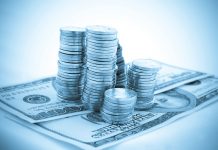Second-half expected slowdown expected to lead to stimulus plans
The secretary-general of the National Economic and Social Development Board (NESDB) recently reported to a workshop chaired by the Prime Minister Yingluck Shinawatra that Thailand faces a number of economic challenges in the second half of this year.
The NESDB noted external economic factors such as the potential wind down of quantitative easing (that is, printing money) in the United States, as hinted at by the Federal Reserve Chairman Ben Bernanke, China’s liquidity crunch, and the slow rate of recovery within the European Union (EU).
The NESDB put their case of the need for economic stimulus by noting that household consumption had risen by just 0.8 per cent in April and May compared with 3.9 per cent in the first quarter of 2013.
The NESDB also noted that private investment had fallen by 2.1 per cent in the April and May period whereas it had risen by 11.1 per cent in the first quarter.
As a consequence of the above, and other factors, the government had reduced its economic growth projections from an original 4.5 to 5.5 per cent to 4.2 to 5.2 per cent.
Concomitantly, the NESDB said all goods prices had risen anywhere from 3.8 to 25.8 per cent since September 2012.
On a positive note, the only sector showing positive growth is tourism. It grew by a substantial 19.4 per cent, or an extra 3.9 million visitors. Of course, tourism is a potentially volatile ‘commodity’, although it has to be noted that tourism has always remained a pretty strong economic provider.
Despite the recommendations made by the NESDB, one of the deputy prime minister’s, Kittiratt Na-Ranong, was quoted as saying that the government had no plans to launch any short-term stimulus measures in 2013. “We have no measures to inject money to stimulate the economy in the short run. The planned borrowing will come as a boon to the economy in the long term. We don’t want to boost the economy in the same way it was done in the past, when the government spent a lot but it was not an investment.”
The deputy prime minister of course was alluding to the government’s planned raising of a two trillion baht loan which they said will drive a massive boost to infrastructure within Thailand.
Despite the comment by Kittirat Na-Ranong, another deputy prime minister, this Niwatthamrong Bunsongphaisan, who is also the commerce minister, appeared to contradict his fellow politician by saying the government would actually consider appropriate stimulus measures for the second half of 2013.








